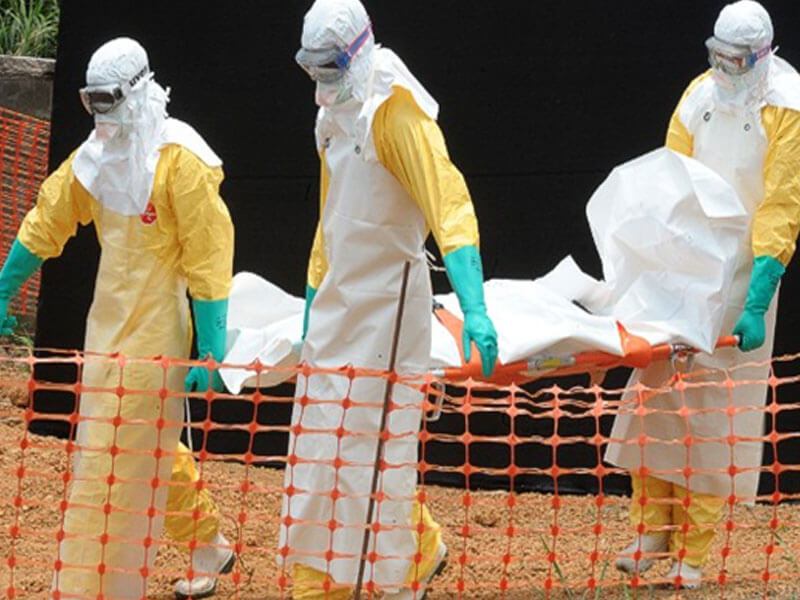The death and unsafe burial of a 65-year-old woman in Mangina in the Democratic Republic of Congo was the critical event that set alarm bells ringing in the latest Ebola outbreak in late July, the World Health Organization has said.
WHO’s emergency response Chief Peter Salama said seven of the woman’s immediate family later also died from Ebola-like symptoms, and potential cases were now being traced in 10 localities.
Apart from Mangina in North Kivu province, there were now suspected cases in the local town of Beni and neighbouring Ituri province, Salama told a regular UN briefing in Geneva.
The WHO also warned that the Ebola outbreak in eastern DRC, is likely spread over tens of km and poses a high regional risk given its proximity to borders.
The health ministry said four people have tested positive for Ebola in and around Mangina, a town of about 60,000 people in North Kivu province, 100 km from the Ugandan border.
Another 20 people died from unidentified haemorrhagic fevers in the area, mostly in the second half of July.
On July 29, a previous outbreak on the other side of the Central African country was declared over after killing 33 people.
“It would appear that the risk, as we can surmise for DRC, is high. For the region it’s high given the proximity to borders, particularly Uganda,” said WHO’s emergency response Chief Peter Salama.
Ebola is believed to be transported long distances by bats and can find its way into bushmeat sold at local markets and eaten. Once present in humans, it causes haemorrhagic fever, vomiting and diarrhoea and is spread through direct contact with body fluids.
The kind of Ebola in the latest outbreak has been confirmed as the Zaire strain that the Merck vaccine protects against, Congo’s health ministry said late on Thursday.
This should allow health officials to again use what has become the greatest weapon against Ebola epidemics to date.
About 1,000 civilians have been killed by armed groups and government soldiers around Beni since 2014, and the wider region of North Kivu holds over one million displaced people.
Officials in Mangina rushed on Thursday to educate people about the risks of spreading the virus in a town that one local nurse told Reuters had no ambulance service.
Agents were deployed to warn people about the need for strict hygiene and the local radio station passed on messages about how to act, a local journalist said by phone.
“There is a great panic among the local population following the appearance of the Ebola epidemic,” said a nurse by phone, who asked not to be named.
Over 11,300 people died of an epidemic in West Africa from 2013 to 2016.

 Health5 days ago
Health5 days ago
 Entertainment6 days ago
Entertainment6 days ago
 Crime5 days ago
Crime5 days ago
 Education7 days ago
Education7 days ago
 Health7 days ago
Health7 days ago
 Comments and Issues6 days ago
Comments and Issues6 days ago
 Football6 days ago
Football6 days ago
 Latest6 days ago
Latest6 days ago

